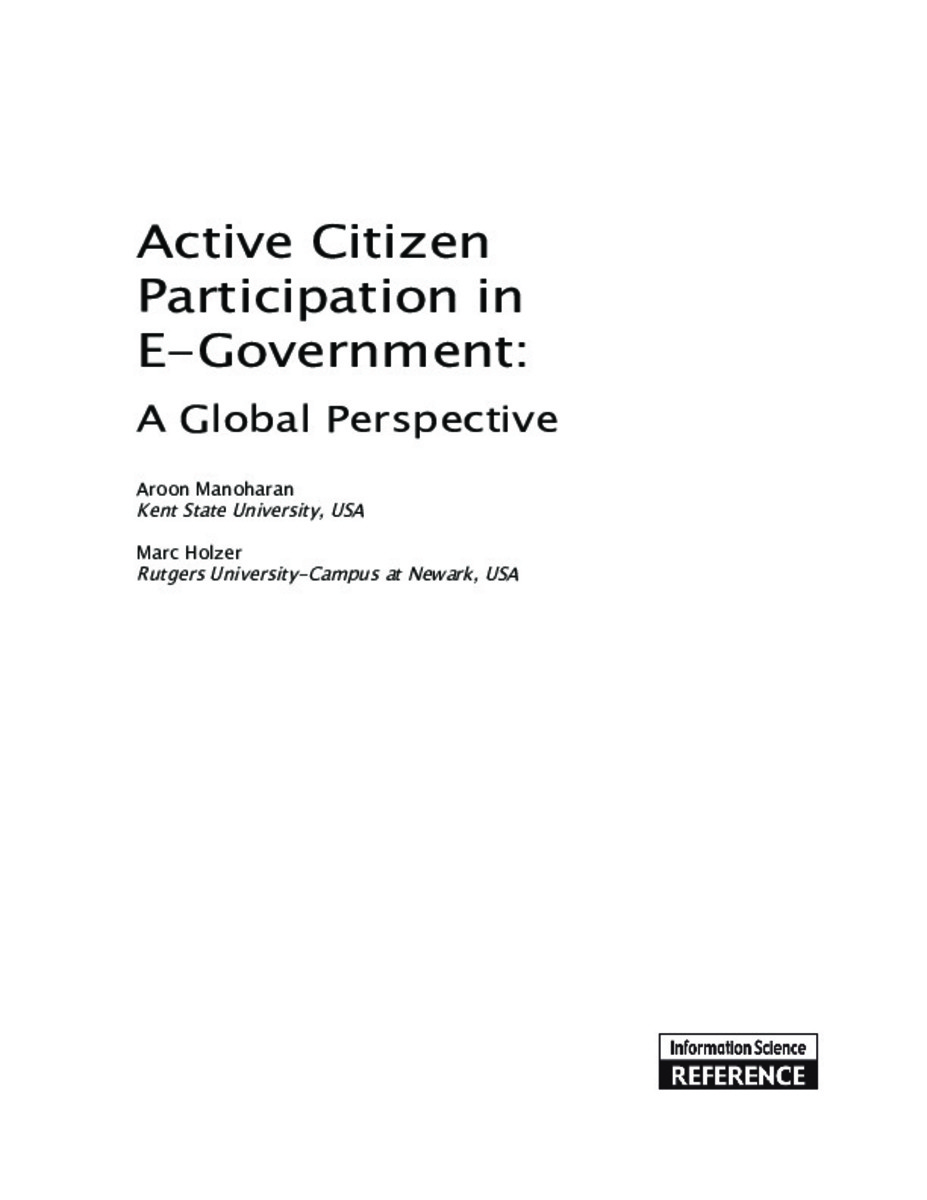Social Networks, Civic Participation, and Young People: A Literature Review and Summary of the Educational Challenges
Keywords:
Materias Investigacion::Educación::Ciencias de la conducta (Psicología) y orientación psicológica
Educación cívica
Publisher:
Information Science Reference
Citation:
Lara, S. & Naval, C. (2012). Social Networks, Civic Participation, and Young People: A Literature Review and Summary of the Educational Challenges.En M. H. Aroon Manoharan (Ed.), Active Citizen Participation in E-Government:A Global Perspective (pp. 187-205). Hershey: Information Science Reference.
Statistics and impact
0 citas en

0 citas en

Items in Dadun are protected by copyright, with all rights reserved, unless otherwise indicated.











